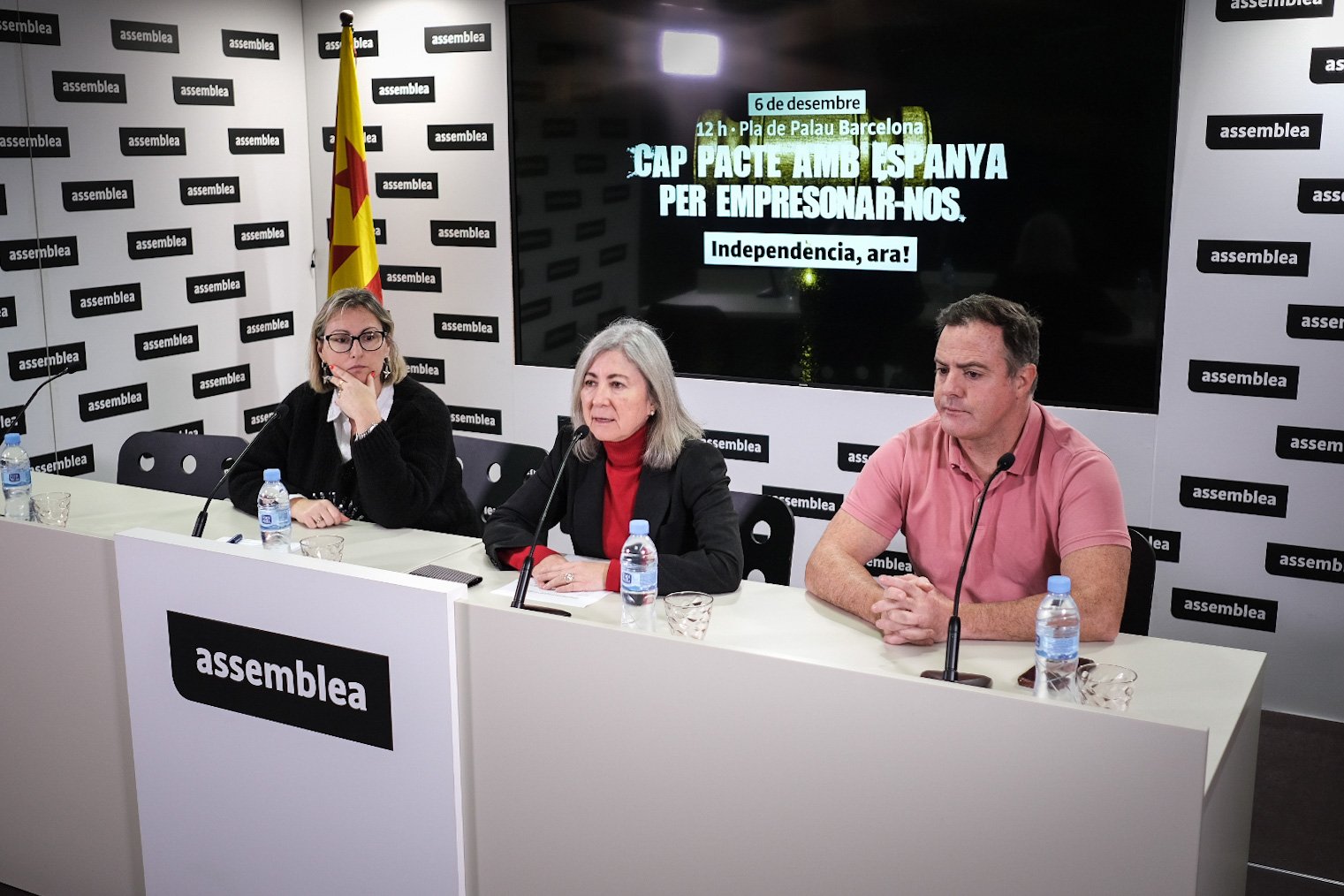An incipient crisis in the Catalan National Assembly (ANC). The debate over the leading pro-independence organization's proposal to promote a non-party candidacy in favour of independence in the next Catalan parliamentary elections has generated contrasting positions in its National Secretariat. This is despite the fact that last May, ANC members approved, with the support of a resounding 96%, its road map for the years 2022-2023, which proposes as a prominent point that the body promotes a civil electoral list, "independent of parties", to defend the will of pro-independence voters in the next elections. In other words, a fourth candidacy that would battle with ERC, Junts and the CUP, but would in no way be a political party. Be that as it may, the text points out that "it will be necessary to determine the required democratic mechanisms for the composition of the civil list and, in any case, it will have to be ratified by the members".
With the intention of getting this process started, the ANC's National Secretariat (the governing body, made up of 68 members) convened an extraordinary meeting last Saturday focused on the civil list plan. The intention of the meeting was to create a specific working group that would start working on a future candidacy, "in accordance with the indications of the road map approved last May", the ANC later recalled in a statement. But the proposal, promoted by president Dolors Feliu (who has made no secret of her support for the plan) and Uriel Bertran, was rejected in a very tight vote: 29 votes against and 28 in favour. A clear knockback for the intentions of the ANC leader herself.
But the matter did not end there because it was accompanied by controversy. Josep Pinyol, also a member of the National Secretariat, published a statement on Monday in which he shared the speech he had wanted to make that Saturday at the special meeting, but which did not happen. The reason, according to Pinyol, is that the presidency of the ANC had "twisted the statutes" to "prevent" the debate point on the civic list, in addition to rejecting that "a group of more than twenty secretaries and national secretaries" presented a motion on this issue. In his planned speech, Pinyol was highly critical of the "narrow vision" that the ANC had acquired with the alternative candidacy plan.
And it is in the midst of this internal crisis that a resignation has arrived at the top of the pro-independence organization. According to digital newspaper elMón, and confirmed by ElNacional.cat, the national secretary Mònica Batalla has decided to "quit" due to differences. Disagreements with the leadership of the ANC were not the only reason that precipitated her departure, but "they had something to do with it", as sources close to the affair told this newspaper.
And despite the fact that the proposal was rejected, the body has affirmed in a statement that the debate will remain open and "will continue through the committees, the territorial assemblies and the grass roots, and on the road map". In addition, they note that it will be the ANC grass roots members who "will take the final decision on promoting the civil list". An insistent approach by part of the leadership, coupled with a way of proceeding that has left dissatisfaction, has thus ended up generating a certain tension among the body's leaders.

